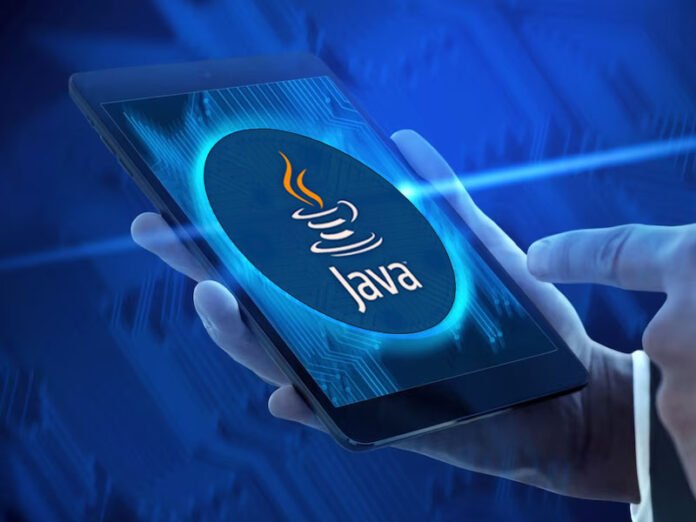Java stands as one of the most widely used programming languages in the world, a testament to its versatility, efficiency, and robust set of features. Since its inception by Sun Microsystems in 1995, Java has evolved to become a cornerstone of modern software development, powering everything from web applications and mobile apps to large-scale enterprise systems. You can opt for Java Training Course in Nashik, Noida, Pune and other Cities in India.
Mastering Java, therefore, is not just about learning a programming language; it’s about unlocking a world of opportunities in software development. This comprehensive guide aims to equip you with the knowledge and skills to become proficient in Java programming, covering the fundamentals, advanced topics, and best practices in Java development.
Understanding Java: The Basics
1. The Java Environment
Java operates on a “write once, run anywhere” (WORA) principle, thanks to the Java Virtual Machine (JVM). The JVM interprets Java bytecode—a form of instructions generated after source code compilation—making it possible to run Java applications on any device equipped with a JVM. This universality is one of Java’s most appealing features.
2. Syntax and Structure
Java’s syntax draws heavily from C and C++, making it relatively easy for programmers with experience in these languages to transition to Java. A basic Java program consists of classes and methods, with the main method being the entry point of any Java application. Understanding Java’s object-oriented structure is crucial, as it revolves around creating and manipulating objects.
3. Data Types, Variables, and Operators
Java offers various data types, including integers (int), floating-point numbers (double, float), characters (char), and boolean values (boolean). Variables are instances of these data types, and operators allow for manipulating these values through arithmetic, logical, and comparison operations.
4. Control Flow Statements
Control flow in Java is managed using conditional statements (if, else if, else), loops (for, while, do-while), and switch statements. These structures control the execution flow of the program based on conditions and loops, allowing for repetitive execution of code blocks.
Advancing with Java: Intermediate Concepts
1. Object-Oriented Programming (OOP) Principles
Java is fundamentally object-oriented. Mastering Java involves understanding OOP principles such as encapsulation, inheritance, polymorphism, and abstraction. These principles facilitate the development of modular, scalable, and maintainable code.
2. Exception Handling
Java’s exception-handling framework allows developers to manage runtime errors effectively, ensuring the program’s stability and security. The try-catch-finally blocks and custom exception classes enable developers to handle known and custom errors gracefully.
3. Collections Framework
Java’s Collections Framework provides a set of classes and interfaces for storing groups of objects. Collections such as Lists, Sets, and Maps are fundamental in managing data within Java applications, offering various operations for manipulating these data structures.
4. Generics
Generics enable types (classes and interfaces) to be parameters when defining classes, interfaces, and methods. This feature provides stronger type checks at compile time and eliminates the need for typecasting, enhancing code readability and robustness.
Mastering Java: Advanced Topics
1. Multithreading and Concurrency
Java’s multithreading capabilities allow for the execution of multiple threads or processes simultaneously, improving the application’s efficiency and performance. Understanding concurrency and thread synchronization is vital for developing responsive and fast Java applications.
2. Java Networking
Java’s rich set of APIs for networking allows developers to create networked applications using TCP/IP protocols. Mastering socket programming and understanding how to manage connections, data transfer, and networking principles are crucial for developing distributed applications.
3. Java Database Connectivity (JDBC)
Java Database Connectivity (JDBC) stands as a pivotal component within the realm of Java programming, especially when delving into advanced topics. JDBC serves as the standard API that facilitates a seamless interaction between Java applications and a wide range of databases. Through JDBC, developers can execute SQL queries, update data, and retrieve results, enabling the manipulation and management of database information directly from Java code.
This powerful interface ensures that applications can communicate with databases in a vendor-neutral manner, offering flexibility and scalability. Mastering JDBC involves understanding connection management, crafting efficient queries, handling result sets, and implementing transaction controls. With these skills, developers can build robust, data-driven applications. Emphasizing best practices in JDBC programming—such as using prepared statements to enhance security and efficiency—is crucial for developing secure, high-performance applications in the Java ecosystem.
4. Java Development Best Practices
Adhering to best practices in Java development is crucial for maintaining code quality and efficiency. This includes following naming conventions, writing readable and reusable code, applying design patterns appropriately, and using version control systems.
5. Tools and Frameworks
Proficiency in Java also involves familiarity with development tools and frameworks that enhance productivity and application performance. Integrated Development Environments (IDEs) like IntelliJ IDEA and Eclipse, build tools like Maven and Gradle, and frameworks like Spring and Hibernate, are integral to modern Java development.
Continuous Learning and Community Engagement
1. Keeping Up with Java
Java is continuously evolving, with regular updates adding new features and improvements. Staying updated with the latest developments by following official Java blogs, attending conferences, and participating in forums is essential for mastering Java.
2. The Java Community
Engaging with the Java community through forums, social media, and local meetups provides invaluable opportunities for learning, collaboration, and networking. Open source contributions and participating in coding challenges can also enhance your skills.
Conclusion
With a solid foundation in Java’s basics, advancing through its intermediate concepts, and tackling its advanced features, developers can unlock the full potential of this versatile language. Emphasizing best practices, leveraging the rich ecosystem of tools and frameworks, and staying abreast of the latest trends are crucial steps in this journey.
Additionally, engaging with the vibrant Java community enriches this learning process, offering insights, support, and opportunities to collaborate. Ultimately, mastering Java opens doors to a wide array of software development projects, from web applications to enterprise-level systems, underpinning a rewarding career in technology.
As Java continues to evolve, so too should the developers who rely on it, ensuring that their skills remain sharp and relevant in the ever-changing landscape of software engineering. Embrace the journey of mastering Java with curiosity and perseverance, and the rewards will be both professional and personal growth.





